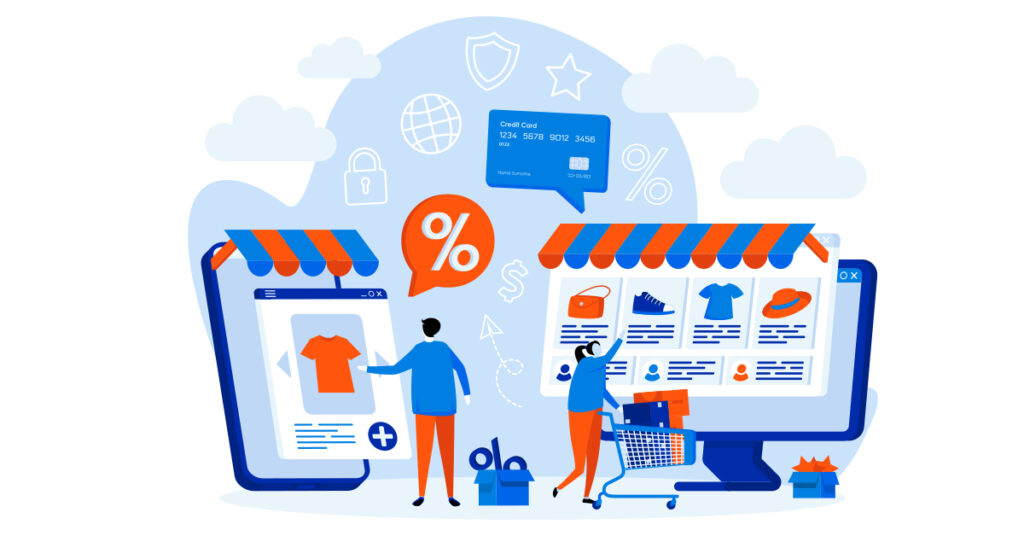The digital revolution has had a significant impact on almost all aspects of our lives, including how we work, sleep, eat, and interact with each other. According to a report, Indians spend around 156 minutes scrolling through popular social networking platforms in a day, on average.
Brands and online stores can leverage the massive popularity of these platforms by adding social commerce to their marketing mix.
What is Social Commerce?
In simple words, social commerce brings the functionality of an e-commerce portal to a social networking platform. It turns social platforms like Facebook, Instagram, Pinterest, and Twitter into a vehicle for promoting and selling products and services.
Why Social Commerce?
3 reasons why businesses should consider social commerce are discussed below-
1. Drive More Engagement
Social networking platforms allow brands to not just advertise and sell but also engage with customers. People can comment, like, share, or tag their friends on your product listings and you can respond to them. This helps create a stronger two-way communication channel that is often missing when using traditional e-commerce solutions.
Brands can also use personalized ads and regularly post engaging content like videos, polls, contests, user-generated content (UGC), etc., to engage with the customers on a more personal level on social platforms.
2. Customer Journey Optimization
In a typical online transaction, a customer clicks on your ad, gets redirected to your online store, chooses the product, and enters the payment details before finally making the purchase. Even if you are receiving web traffic from search results, the journey is more or less the same. The entire process is pretty long and filled with distractions.
Social commerce can drastically shorten the customer journey. For instance, Facebook allows page owners to create a shop section with product/service listings. You can enable the ‘Message to buy’ option on your Facebook Shop to allow customers to directly ask questions to you through Facebook Messages and arrange purchases without ever visiting your website or online store.
3. Builds Deeper Trust
According to a report by The Consumer Goods Forum, 70% of the consumers are interested in knowing more about the health, social, environmental, and safety impact of the products they purchase. Social commerce platforms are excellent places to let consumers know more about your brand, products/services, and the people running it.
It helps improve brand awareness and builds deeper trust with the audience. With social commerce, people can view and purchase your products/services on a platform where they are already following you and engaging with you. This could also lead to improved sales and revenue.
Social Commerce to Establish a Strong Brand
Social commerce is one of the most effective e-commerce solutions as it helps you build brand awareness while also earning direct conversions. It can be an excellent addition to any marketing strategy if the end goal is to improve engagement, shorten customer journey, build trust and improve sales.
Brands can rely on reputable digital marketing companies to strengthen their social presence and establish an online store on leading social platforms.





